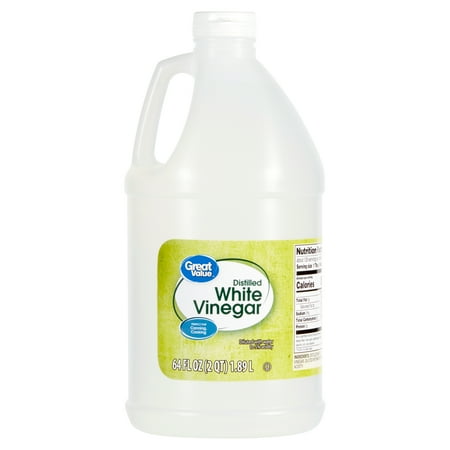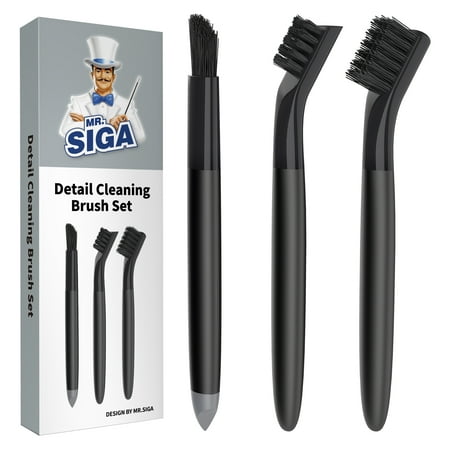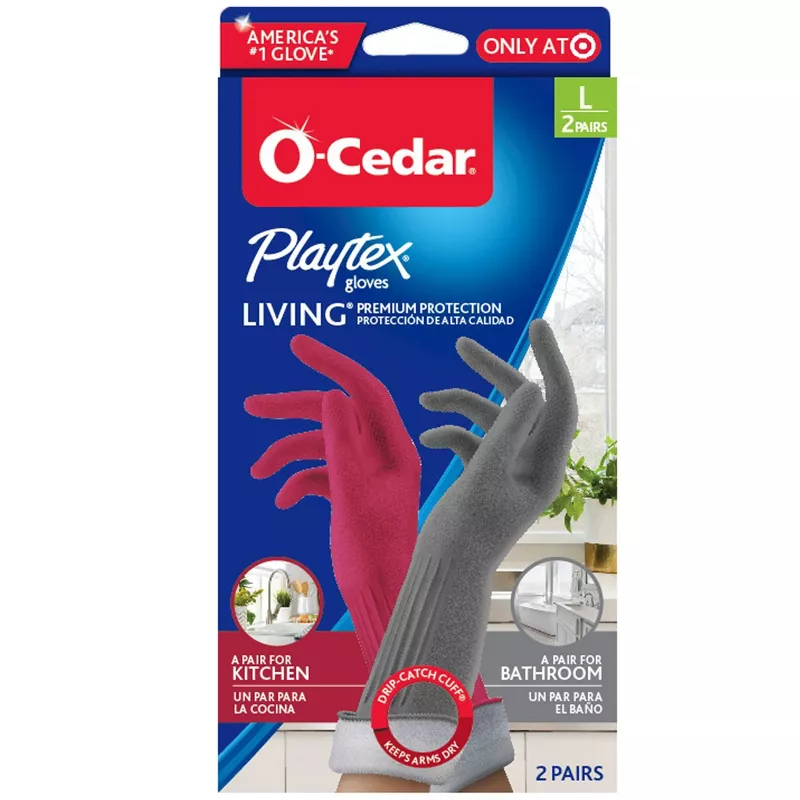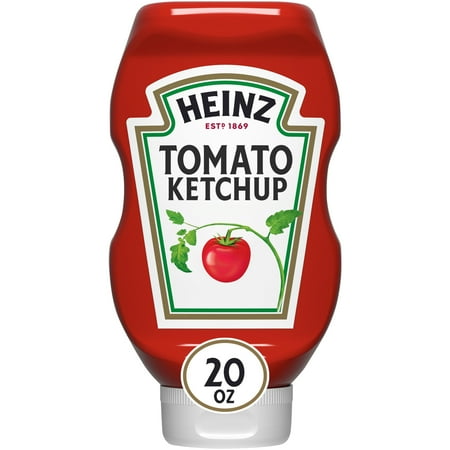You can clean rust off locks with a common condiment – I gave this viral cleaning trick a go, and the results genuinely shocked me
Another pantry win for household cleaning without harsh chemicals


Design expertise in your inbox – from inspiring decorating ideas and beautiful celebrity homes to practical gardening advice and shopping round-ups.
You are now subscribed
Your newsletter sign-up was successful
Want to add more newsletters?

Twice a week
Homes&Gardens
The ultimate interior design resource from the world's leading experts - discover inspiring decorating ideas, color scheming know-how, garden inspiration and shopping expertise.

Once a week
In The Loop from Next In Design
Members of the Next in Design Circle will receive In the Loop, our weekly email filled with trade news, names to know and spotlight moments. Together we’re building a brighter design future.

Twice a week
Cucina
Whether you’re passionate about hosting exquisite dinners, experimenting with culinary trends, or perfecting your kitchen's design with timeless elegance and innovative functionality, this newsletter is here to inspire
Ketchup is great – it is a staple in most of our pantries, and fries would not be the same without it. But have you ever considered using Ketchup to remove rust?
Don’t worry, I was skeptical too. The last thing I think of when I spot rust is dipping it in my favorite condiment; however, after testing it on a rusty lock, I was shocked at how well it worked.
Here I explain why this cleaning tip works and how to do it.
Does ketchup remove rust?
Yes, it does. Ketchup is acidic, which loosens the oxidized metal let's it flake off. That is why Ketchup works so well to remove rust from your bathtub, clean a rusty griddle, clean rusty tools, and more.
Of all the foods you can clean your home with, Ketchup is surprisingly one of the most powerful. This is because of the high acetic acid content from the tomatoes and vinegar used to make it.
It works the same way as cleaning with vinegar, but the thicker paste formulation makes it easier to spread onto vertical surfaces.
The process for using Ketchup to remove rust is simple:
Design expertise in your inbox – from inspiring decorating ideas and beautiful celebrity homes to practical gardening advice and shopping round-ups.
- Apply a generous layer of ketchup: This is pretty self-explanatory; simply slather the rusty area in the sauce. The paste form was perfect for my rusty lock, as it had rusted in place hanging from my shed door. I used my finger to do this, but if the rusty surface is sharp, you can use a small silicone spatula, available at Walmart.
- Let it sit: The key to this method is patience. With the ketchup applied, you let it sit and soak, giving the acid time to weaken the bond between the rust and the surface. For lightly rusted surfaces, a few hours will do the trick, but I opted to leave the ketchup overnight. Because it was outside, a warm, dry night made this more feasible.
- Clean away with a brush: To remove the ketchup, I started by removing the bulk of the sauce with a paper towel before scrubbing the lock with warm, soapy water and a wire brush, similar to the hyper tough wire utility brush set from Walmart.
Amazingly, the rust flaked away with ease.
If you do not have a wire brush, you can also clean rust with aluminum foil, such as Reynolds Wrap, from Walmart.
For more delicate surfaces, such as removing rust from stainless steel, Maria Anderson, cleaning and organizing expert at Henfield Storage, urges caution, as there are some things you should never use steel wool on around your home.
She explains, ‘While stainless steel appliances are durable, they can still be damaged by steel wool as it leaves unsightly marks. Use a microfiber cloth, available in packs of six at Target, for delicate surfaces with a stainless steel cleaner, such as Method stainless steel cleaner from Target, that is specifically created for these appliances.’

Ketchup is perfect for surfaces in kitchens, as it is food-safe, reducing the risk of contamination.
Having easily removed the rust with Ketchup, you should take steps to prevent it from returning.
Avoiding common tool storage mistakes will keep your DIY and gardening supplies in top condition, while limiting exposure to moisture and properly drying surfaces will help for other metal surfaces around the home, such as pans and bathroom fixtures.
Multitools expert Glen Peskett of Saxton Blades adds, ‘a few drops of WD-40 [available at Target] or rust-preventative oil on non-food related items will help protect against future damage.’
Rust-busting essentials

If you don't want to use ketchup, vinegar is a great alternative. It is still natural, and can be used for larger projects (as it is cheaper). You'll need to soak the item in a container of vinegar.

For cleaning rust from small or tight areas, such as around locks, radiators, or plugholes, use these stiff-bristled grout brushes.

While Ketchup is harmless to touch, rusty surfaces are risky and can cut you and give you tetanus (a serious disease of the nervous system). Wearing thick cleaning gloves and using brushes or an applicator can help prevent the risk.
FAQs
What is the best homemade rust remover?
While Ketchup can be a good homemade rust remover, you can also soak it in pure vinegar for several hours before scrubbing with a wire brush or steel wool. This is best for items you can submerge easily, or items that have small nooks and crevices where the vinegar can soak in.
Does WD-40 remove rust?
WD-40 is a great lubricant to help protect metal from rust and remove surface flakes of rust, but it does not remove tough rust. Instead, use white vinegar or Ketchup to break down the corrosion with acid before using WD-40 as a finishing coat.
Ketchup is not the only bizarre household product you can turn into an essential cleaning supply. There are some surprising things you can clean with toothpaste or clean with shaving foam if you feel like raiding your bathroom cabinets instead.

Chiana is Homes & Gardens’ kitchen appliances editor. With a lifelong passion for cooking and baking, she grew up experimenting in the kitchen every weekend with her baking-extraordinaire Mom, and has developed a great understanding of how tools and appliances can make or break your ideal relaxing kitchen routine.
